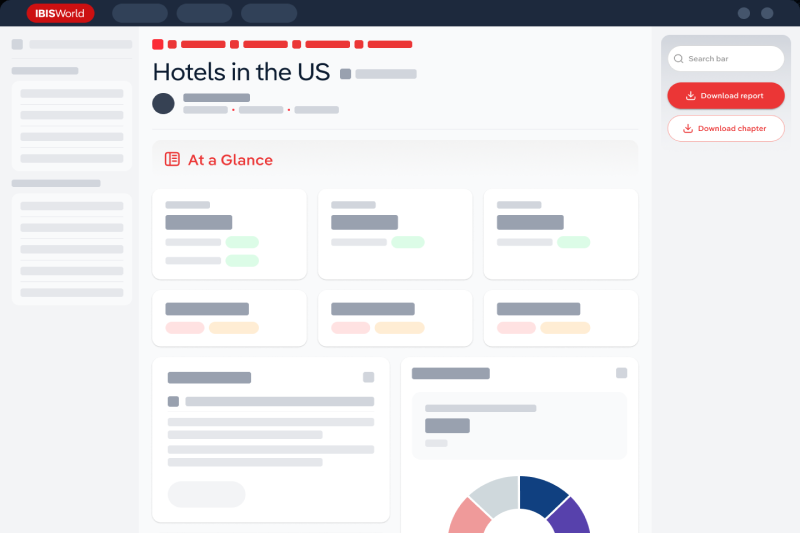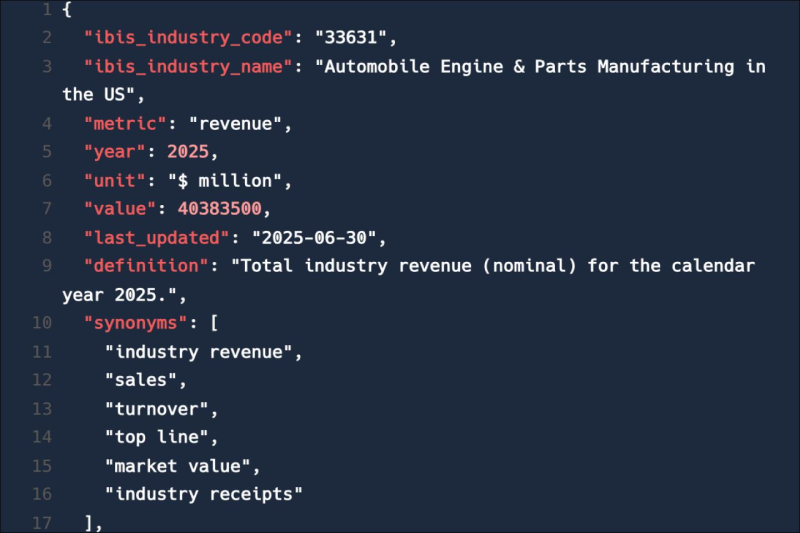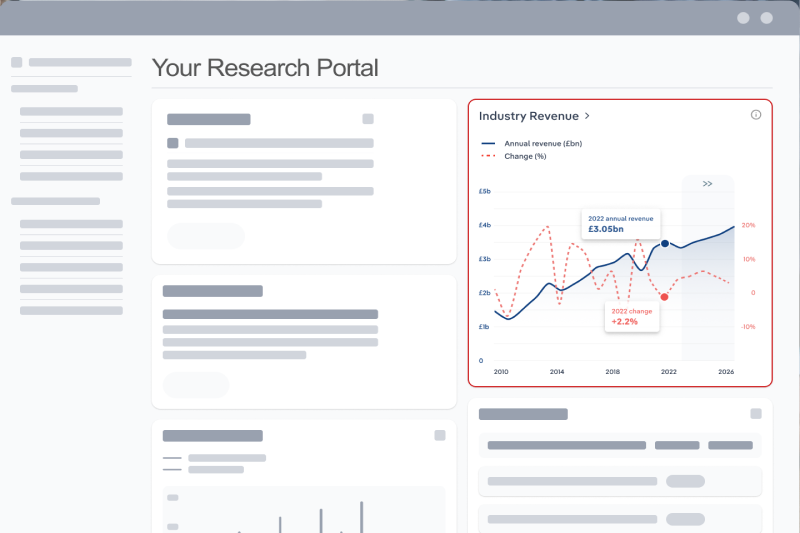IBISWorld Platform
Answer any industry question in minutes with our entire database at your fingertips.

The German petrol station industry is dominated by the "big five" Aral, Shell, Jet, Couche-Tard and Esso, although many petrol stations do not sell their fuels independently but act on behalf of the oil companies and only receive small commissions. An increasing proportion of the industry's turnover and profits are being generated by ancillary businesses such as shops and services, as the sale of fuels alone is less profitable. The development of the global market price for crude oil and events such as the coronavirus crisis and the Ukraine crisis had a significant impact on the industry. The Ukraine crisis threatened oil supplies and caused crude oil prices to rise, which had a negative impact on visits to petrol stations and the sale of products in the shops, although some independent petrol stations were able to push through higher prices for a short time and achieve higher profits in the short term.

Answer any industry question in minutes with our entire database at your fingertips.

Feed trusted, human-driven industry intelligence straight into your platform.

Streamline your workflow with IBISWorld’s intelligence built into your toolkit.
IBISWorld's research coverage on the Petrol Stations industry in Germany includes market sizing, forecasting, data and analysis from 2016-2031. The most recent publication was released January 2026.
The Petrol Stations industry in Germany operates under the WZ industry code G47.30DE. The core activity of the industry is the sale of motor fuels to private and business customers. Additional services offered by petrol stations, such as car repairs or sales in petrol station shops, also fall under the industry definition. The income generated in this way is added in full to the industry turnover, while only the commissions are included in fuel sales for petrol stations that are contractually closely tied to mineral oil companies. Related terms covered in the Petrol Stations industry in Germany include big five, a-society, b-society, free petrol stations and yard or company petrol station.
Products and services covered in Petrol Stations industry in Germany include Fuels, Other products and services.
Companies covered in the Petrol Stations industry in Germany include BP Europa SE, Shell Deutschland GmbH and Couche-Tard Deutschland GmbH & Co. KG.
The Performance chapter covers detailed analysis, datasets, detailed current performance, sources of volatility and an outlook with forecasts for the Petrol Stations industry in Germany.
Questions answered in this chapter include what's driving current industry performance, what influences industry volatility, how do successful businesses overcome volatility, what's driving the industry outlook. This analysis is supported with data and statistics on industry revenues, costs, profits, businesses and employees.
The Products and Markets chapter covers detailed products and service segmentation and analysis of major markets for the for the Petrol Stations industry in Germany.
Questions answered in this chapter include how are the industry's products and services performing, what are innovations in industry products and services, what products or services do successful businesses offer and what's influencing demand from the industry's markets. This includes data and statistics on industry revenues by product and service segmentation and major markets.
The Geographic Breakdown chapter covers detailed analysis and datasets on regional performance of the Petrol Stations industry in Germany.
Questions answered in this chapter include where are industry businesses located and how do businesses use location to their advantage. This includes data and statistics on industry revenues by location.
The Competitive Forces chapter covers the concentration, barriers to entry and supplier and buyer profiles in the Petrol Stations industry in Germany. This includes data and statistics on industry market share concentration, barriers to entry, substitute products and buyer & supplier power.
Questions answered in this chapter include what impacts the industry's market share concentration, how do successful businesses handle concentration, what challenges do potential industry entrants face, how can potential entrants overcome barriers to entry, what are substitutes for industry services, how do successful businesses compete with substitutes and what power do buyers and suppliers have over the industry and how do successful businesses manage buyer & supplier power.
The Companies chapter covers Key Takeaways, Market Share and Companies in the Petrol Stations industry in Germany. This includes data and analysis on companies operating in the industry that hold a market share greater than 5%.
Questions answered in this chapter include what companies have a meaningful market share and how each company is performing.
The External Environment chapter covers Key Takeaways, External Drivers, Regulation & Policy and Assistance in the Petrol Stations industry in Germany. This includes data and statistics on factors impacting industry revenue such as economic indicators, regulation, policy and assistance programs.
Questions answered in this chapter include what demographic and macroeconomic factors impact the industry, what regulations impact the industry, what assistance is available to this industry.
The Financial Benchmarks chapter covers Key Takeaways, Cost Structure, Financial Ratios, Valuation Multiples and Key Ratios in the Petrol Stations industry in Germany. This includes financial data and statistics on industry performance including key cost inputs, profitability, key financial ratios and enterprise value multiples.
Questions answered in this chapter include what trends impact industry costs and how financial ratios have changed overtime.
The Industry Data chapter includes 10 years of historical data with 5 years of forecast data covering statistics like revenue, industry value add, establishments, enterprises, employment and wages in the Petrol Stations industry in Germany.
More than 6,000 businesses use IBISWorld to shape local and global economies
We were able to supplement our reports with IBISWorld’s information from both a qualitative and quantitative standpoint. All of our reporting now features some level of IBISWorld integration.

IBISWorld delivers the crisp business knowledge we need to drive our business. Whether it be serving up our major clients, winning new business or educating on industry issues, IBISWorld brings real value.

IBISWorld has revolutionised business information — which has proved commercially invaluable to exporters, investors and public policy professionals in Australia and overseas.

When you’re able to speak to clients and be knowledgeable about what they do and the state that they operate in, they’re going to trust you a lot more.

The market size of the Petrol Stations industry in Germany is €19.0bn in 2026.
There are 5,720 businesses in the Petrol Stations industry in Germany, which has declined at a CAGR of 1.4 % between 2021 and 2026.
The Petrol Stations industry in Germany is unlikely to be materially impacted by import tariffs with imports accounting for a low share of industry revenue.
The Petrol Stations industry in Germany is unlikely to be materially impacted by export tariffs with exports accounting for a low share of industry revenue.
The market size of the Petrol Stations industry in Germany has been declining at a CAGR of 3.5 % between 2021 and 2026.
Over the next five years, the Petrol Stations industry in Germany is expected to grow.
The biggest companies operating in the Petrol Stations industry in Germany are BP Europa SE, Shell Deutschland GmbH and Couche-Tard Deutschland GmbH & Co. KG
Fuels and services are part of the Petrol Stations industry in Germany.
The company holding the most market share in the Petrol Stations industry in Germany is BP Europa SE.
The level of competition is moderate and increasing in the Petrol Stations industry in Germany.




